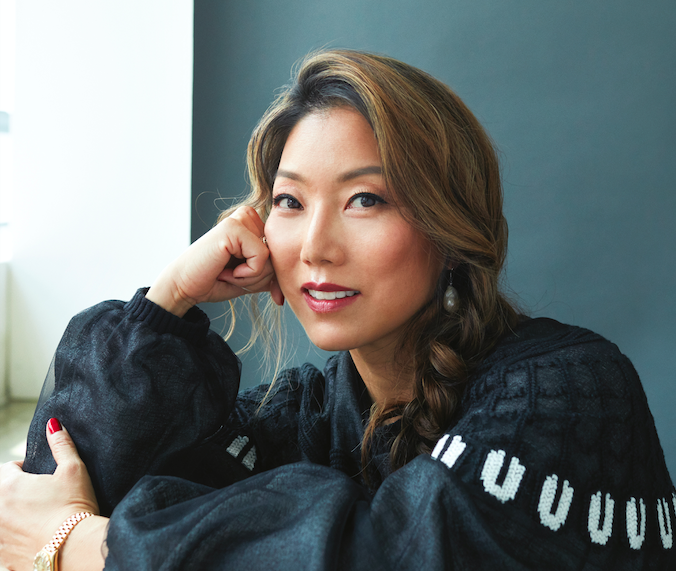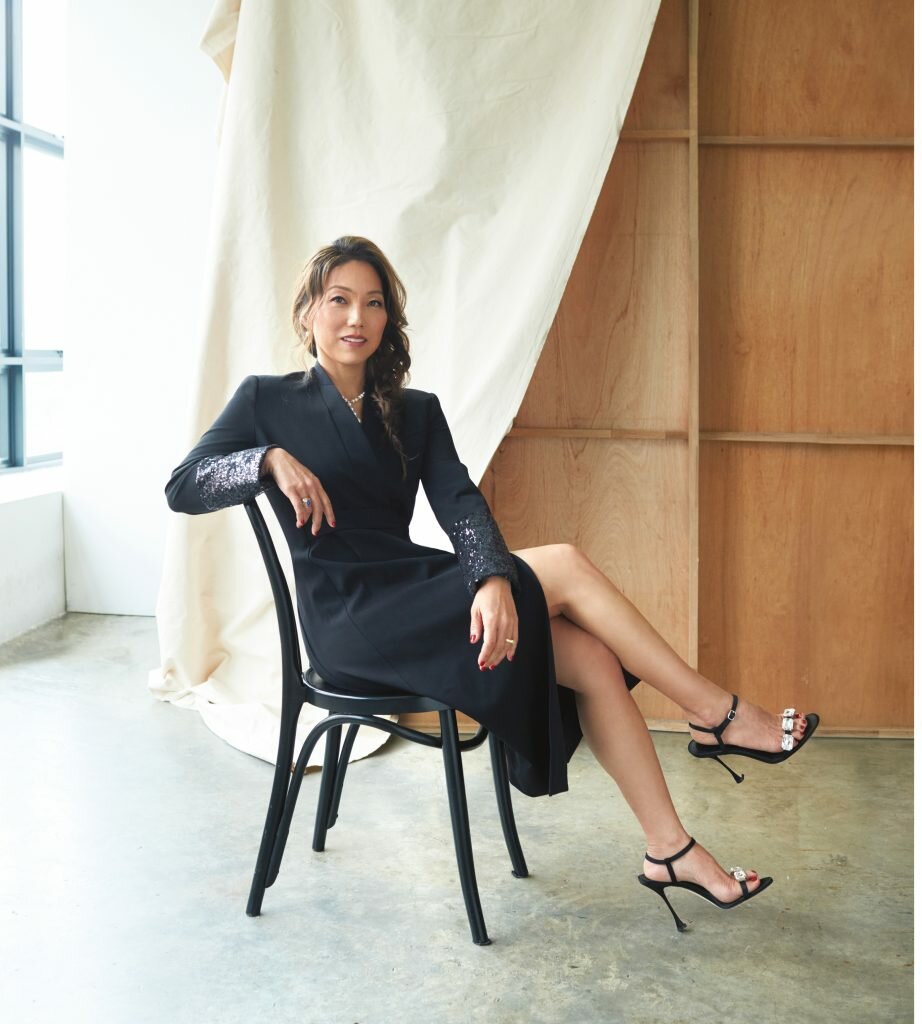A routine checkup that turns into the discovery of a life-threatening condition — it’s news no one wants or even expects to receive, and the horror of it all is made worse when the news pertains to one’s child. In the seconds that come after learning of the diagnosis, fear and helplessness are overtaken by a desire to regain control. This is when people ask: What happens now? What can we do? What should we do?
Grace Park and her husband Cole Sirucek faced this exact moment more than seven years ago, when they learnt that their three-month- old daughter Rand had a rare liver condition that required a complicated surgery as soon as possible. Thanks to their background in the healthcare industry, both parents were unafraid to further question their doctor.
“How many times have you done this procedure? How much is it going to cost? Can we meet your previous patients who have undergone this surgery? Are they thriving? These were just some of the initial questions we had,” Park recalls. Unfortunately, their queries were met with haughty dismissal. “He basically crossed his arms and said, ‘I’m the head of the department. I’m good at my job.’”
Unimpressed and unconvinced, Park rang up a family friend, who was a surgeon in that same hospital, for a second opinion. He suggested the parents do an international search and within an hour, they got in touch with a Dr Tanaka from Kobe, Japan.
“He had done 2,000 such liver transplants by the year 2000 and then he stopped counting,” she says. Dr Tanaka successfully completed the procedure on Rand in Kobe the next day, and a few months later, flew to Singapore with his team to transplant a piece of Sirucek’s liver onto Rand’s to ensure she remained healthy.
“Dr Tanaka is a pioneer in this field and Rand was the youngest patient to undergo such a transplant but he still cost 60 percent less, and that wasn’t obvious from the beginning at all.” That moment crystallised Park’s mission for DocDoc.
Disruption to discovery
In 2012, Park was pregnant not just with her daughter, but also with the idea of starting a healthtech company that would use information technology to empower patients. “When Cole and I incorporated the company, we actually started out as a simplified doctor booking system, but it wasn’t until we had gone through that ordeal that we realised this is where the pain point is.”
DocDoc immediately swivelled into the direction of becoming a platform that uses AI to provide patients with all the information necessary to make the right choices. The foundation of DocDoc is based on an AI platform called Hope (which stands for Heuristic for Outcome, Price and Experience). Algorithms are then layered on top of structured proprietary data to match the doctor to patient based on the doctor’s unique expertise and the patient’s medical needs.
The easier it is for the user, the more complicated it is behind the curtain. To comb through centuries of accumulated medical knowledge and arrange the trillions of permutations and combinations of procedures and specialities into analysable data took 23 in-house doctors and a team of clinical informaticists three-and-half years to get done. Of course, it’s all paying off. “Our Net Promoter Score (NPS) is consistently high, and at 88 now,” shares Park. “The health insurance industry average is about 12.”
While DocDoc is not available to the general public, it is, however, accessible through partner insurance companies and employers in eight countries in Asia, with over 23,000 doctors in the network. This way, there are no fees levied on the patient or the doctor by, say, an agent charging a finder’s fee, thus ensuring no financial conflict of interest. The insurance companies and employers foot the bill, so they can offer DocDoc as a value- added service or a perk to their policy holders or employees.
It’s not just the patients who benefit either. “If you’re a doctor who took an extra year to train in hand surgery as a sub-speciality, we can find you a patient who needs hand surgery and might be a good match for you. That’s our value proposition to doctors.” DocDoc’s sign-up success rate for doctors last year was 94.6 percent.
Most recently, DocDoc’s success caught the attention of China’s leading insurance risk control company Kaitaiming Technology, and was appointed the company’s exclusive partner for pan-Asian doctor discovery services just this June. With this partnership, DocDoc will be able to support China’s top insurance companies on Kaitaiming’s insurance agent platform.
“There’s a clear distinction between what we do versus a service that just helps you find a doctor in your neighbourhood — excuse me, sweetie pie,” Park is interrupted as a lively Rand materialises out of her mother’s virtual Zoom background for a quick “I love you, mum!” before zipping back out with an energy that belied any former illness.
A tight tribe
“She doesn’t draw a salary but Rand feels she is very much a part of the business now,” Park laughs. She and her husband lead the company as president and CEO respectively, and while a startup can hardly be considered a family business in the traditional sense, they’re definitely in this together.
Park remembers the time Rand was on the set of a TV show she was about to go on. “We told Rand to please be quiet because this was going to be a live interview, and she said okay, and went off to the side. But right when we were about to go live, she said, ‘I want to be in this too!’ So we said, okay, fine, but you can’t say a word. As soon as the moderator asked me what DocDoc was about, Rand raises her hand and says, ‘Can I explain this?’”
She goes on to say that Rand wants to give hope to people, to tell them that it’s all okay and that they can have a good life after surgery. The scars that all three family members bear — the ones her daughter and husband share after the liver transplant, as well her own caesarian section scar — are something she’s proud of “because it tells our story”.
But more important than shared physical remnants of momentous events is the shared values that has kept this husband-and-wife team going strong. “A person who’s just thinking in terms of business and optimising financial returns wouldn’t consider a job like this,” she says. “But for Cole and I to put all our eggs into one basket — we’re not diversifying at all — it’s because we believe we’re doing something that’s much bigger than ourselves.”
Park moved to Singapore 16 years ago on a Fulbright Fellowship, and what started as a nine- month exchange programme turned into job opportunities that rooted her here. Singapore’s many benefits — its reputation as a global city and living laboratory, initiatives for transformation into a smart nation and, of course, safety and familiarity — are also the reason she decided to start her entrepreneurial journey here rather than back home in the US.
Despite the many requests from friends, readers and viewers of the DocDoc story to bring the service to their countries, Park’s focus is on Asia for the time being. “Our priority is to continue to build partnerships and not just to go wide, but deep.”
Still, Park is all too aware that the healthcare problem DocDoc is tackling is a global one. “What do patients typically do when they fall sick? They ask their primary care physician, family, friends or even Google for recommendations but these are all anecdotes that often aren’t curated,” she says. “If you look at any other sector, like cars or housing, you have so many metrics to choose from and filter through before you make a decision but none of that exists in healthcare.”
As she explains, that is because patients rarely have to see the bill if they have an insurance policy, employer or government aid to cover it. “So the patient doesn’t have the voice or the knowledge to say, ‘Hey, is this the appropriate care at the appropriate price?’” The ultimate goal for DocDoc is to change this status quo everywhere, so that patients can make decisions based on data.
A humble hero
Park and Sirucek make a powerful duo, because his catchy positivity and masterful strategising complements Park’s razor-sharp focus and operational prowess. And she navigates life as a wife, mother and business partner by careful compartmentalisation and respecting the boundaries between work and home.
These are qualities she credits to her time in the military. It’s hard to picture this genial woman with the perfectly contoured cheekbones, life-saving healthtech business and three French bulldogs named Princess, Rainbow Sparkles and Blue Diamond Boy once served as 2nd Lieutenant to Captain during her five-year career in the US Army.
Inspired by parents who had lived through the Korean War and disappointed at how the admissions catalogue from the United States Military Academy at West Point featured no photographs of people like her — an Asian- American woman — she signed on to learn to be “a leader of character”.
She worked “[her] butt off” to get into the academy (which has an acceptance rate of about 10 percent) and continued to do so to survive the intense training. For example, mornings involved falling into formation and being ready to be quizzed on the front page stories of the day’s edition of The New York Times, or being asked to recite something from the academy’s curriculum, such as Schofield’s Definition of Discipline. Punishments varied from the physical such as pushups, to the creative, where cadets were given five minutes to change into one of a dozen different uniforms in quick succession.
All this honed the discipline Park needed to earn dual master’s degrees from Harvard Kennedy School and Harvard Business School after she left the army. In an unexpected turn, it also charted her course towards healthcare. The CEO of pharmaceutical company Bristol-Myers Squibb was a former naval officer, and he was specifically looking to hire junior military officers to fill middle management roles.
“He was the only employer I connected with on a personal level because he knew how to translate my military background into a for-profit world.”
Even as she forged ahead in said money-minded world, moving up the corporate ladder and to Singapore, and finally taking the entrepreneurial route with DocDoc, Park held fast to her purpose.
“I wanted to carry on that mission of doing something meaningful for the world. To use the talents, experiences and knowledge given to me to make the world a better place.”
This feature first appeared as the cover story in the September 2020 issue of A Magazine.



